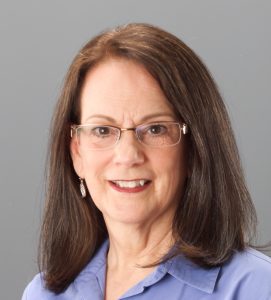I had the opportunity to interview two researchers Debra E. Kachel and Keith Curry Lance in the United States examining their project funded by the Institute of Museum and Library Services (IMLS) on “finding some trends on exactly what’s happening behind the national data that shows an almost 20% decline in the number of school librarians [in the United States] over the last 10 years.” This interview conversation centers on this research project as well as the research processes on school librarians in the United States.
Ray: Thank you both for taking the time to talk about this important project. I was wondering if you can share briefly why you both decided to work on this project and what you hope school libraries, library advocates, and decision makers will understand from this important work?
Debra: Keith and I have been working together since our first IMLS grant project in 2011 that produced a Pennsylvania school library impact study. We both feel strongly about the role of school librarians to preparing tomorrow’s leaders and citizens. In this three-year IMLS grant, we wanted to document the availability of school librarians in U.S. schools and how equitable that distribution looked in terms of school characteristics and student demographics. Thanks to Keith’s deep examination of the CCD datasets made available by NCES, we have evidence of profound inequities particularly among poor students, non-white students, and Hispanic students as well as those who are limited English proficient. Overall, almost 20% of U.S. school librarian positions have been lost since 2009-2010, while the number of administrators and instructional coordinators have increased by double digits. This plus an examination of per pupil spending leads us to believe that the losses of school librarians are not solely based on school finances—a common reason for eliminating librarians.
Next year begins the qualitative phase of the grant with interviews of school leaders who decide how to staff library, learning resources, and instructional technology services for their schools. Based on the NCES data, some school decision-makers are choosing to move school librarian staffing dollars to other more valued or needed positions, at least from their perspectives. Or, perhaps the traditional role and job title of a school librarian has changed or combined with other positions to the point that they are no longer being reported or classified as a school librarian. In some cases, school leaders may take the position that school librarians are no longer needed to meet their schools’ priorities. Whatever the reasons, we hope to tease out what’s behind the continual decline in librarian positions by interviewing 100 U.S. school leaders where there have been dramatic changes in the number of employed librarians–both in districts that added as well as eliminated those jobs. Examining the district level data from CCD between 2015-16 and 2018-19, we have identified districts meeting these criteria.
Personally, I am blessed to have worked over 30 years as a school librarian and district library coordinator during the booming years of school librarianship, the 1970s through the early 2000s. This project is legacy work for me. I don’t want to leave this profession in its current state, or worse than when I began my career as a school librarian.
Keith: Deb and I share a concern for the future of the profession, given the losses of positions over the last decade. We believe a major contributor to those losses has been a “disconnect” between school librarianship and the larger education community, particularly school leaders who make staffing decisions. SLIDE is an effort to describe what’s going on and to begin to open a dialog with school leaders, so the school library community can better understand the factors influencing staffing decisions. It’s time for us to do some serious listening.
Ray: Anything surprising so far in your research that you can share? What has been the most challenging part in addressing this issue?
Keith: For me, the most challenging part of this research is the limited data available about school libraries and librarians. All kinds of data are collected about public and academic libraries; but, school libraries are quite “data-poor.” We are using the only annual federal data there is: counts of school librarians and library support staff in full-time equivalents at district, state, and national levels. Unfortunately, there aren’t available data at school level and the definition of a school librarian on which the data are collected is quite outdated. On the whole, though, these data are reported remarkably well—with the exception of a few states and districts that don’t comply with the federal data collection process.
Debra: To me, the most challenging aspect of this project will be securing interviews of school decision makers in districts that have eliminated librarian positions. Will they candidly talk to us and tell us about the experiences, values, perceptions, and priorities that formed their decisions?
Ray: In your research do you both see the impact on academic libraries and their roles in supporting students who attended schools where there were no school librarians? We see a growth of first year experience/student success librarian positions in higher education across the United States and wondering if this has some correlation between the decrease of school librarians and the growth of these roles supporting first year students.
Debra: While studying first-year college students from K-12 districts without librarians is not within the scope of this grant, others are studying this, such as Dr. Joyce Valenza, Rutgers University, who also serves on the SLIDE Advisory Council. However, I can only imagine the task it must be to teach first-year college students who have never experienced the instruction of a school librarian to enable them to excel in their academic studies. And there are districts that have not had librarians for that long.
Keith: This is a very interesting issue; but, it is not one on which we’ve neither done any research nor have any data.
Ray: What about the global context? Any thoughts you may have on this or research you’ve uncovered that you can share? Is this uniquely a United States issue? Of course, librarianship as a profession varies country to country but curious if you’ve seen similar trends or models?
Keith: Unfortunately, there are no cross-national data about school libraries and librarians. At least, none that I’m aware of. I don’t believe any international organization collects comparable school library data for multiple nations. It seems unlikely, however, that what we’re experiencing in the U.S.—sharp losses of positions and major equity issues as a result—are uniquely U.S. problems.
Debra: I agree with Keith. However, I am aware of the work of Dianne Oberg (Canada), Margaret Merga (Australia), and others who have documented similar trends in other countries. So, I believe, the decline in school librarians in not just a U.S. issue.
Ray: Thank you again for taking the time to answer my questions! Anything else you’d like to share that we did not get to talk about?
Debra: This project when completed will provide new information from the perspective of school employers who decide how to staff information, library, and technology services for their schools. We are most interested in knowing if the school librarian position has morphed with other educator roles and what that looks like in varying school settings. We want to learn if there are new models of library staffing that the school library profession needs to think about to ensure that K-12 students receive the needed information and technology instruction they will need to be successful in their futures.
Keith: We encourage everyone interested in keeping tabs on the SLIDE project to visit the project website regularly. The URL is https://libslide.org/ ; our Twitter is @lib_SLIDE. In addition to our reports, there will be interactive data tools that enable users to select data they wish to see and have it displayed in tables, charts, and maps. Also, we encourage everyone who works in a U.S. public school to touch base with whoever reports to the National Center for Education Statistics about school librarian employment to be certain they are reporting about school librarians and library support staff and doing so accurately.
Debra E. Kachel is an Affiliate Faculty, School of Education, Antioch University Seattle, teaching online graduate courses in the School Library Endorsement program. She previously taught for McDaniel College (MD), Mansfield University (PA), and Drexel University (PA) and has over 30 years of experience as a school librarian and district library coordinator. She is the Project Director of SLIDE: The School Librarian Investigation—Decline or Evolution? and received the American Association of School Librarians Distinguished Service Award in 2014.
Keith Curry Lance is the Principal Investigator for SLIDE, best known for two decades of state-level studies of the impact of school libraries and librarians on standards-based test scores. He and Deb have published their SLIDE-related work in Phi Delta Kappan, School Library Journal, and Teacher Librarian. He was a featured speaker at the White House Conference on School Libraries in 2002, and received the American Association of School Librarians Distinguished Service Award in 2013.


I appreciate the info in this interview. I started my library career as a school librarian in Maryland (MCPS), which was very interesting and I learned a lot. At the time, I considered going back to DC Public Schools (where I first started my teaching career) but I learned that they had cut school librarian positions, and are still battling with those positions today. True, there doesn’t seem to be much data on this area like you mentioned. It saddens me that some admin or other school stakeholders don’t see the value of school librarians.